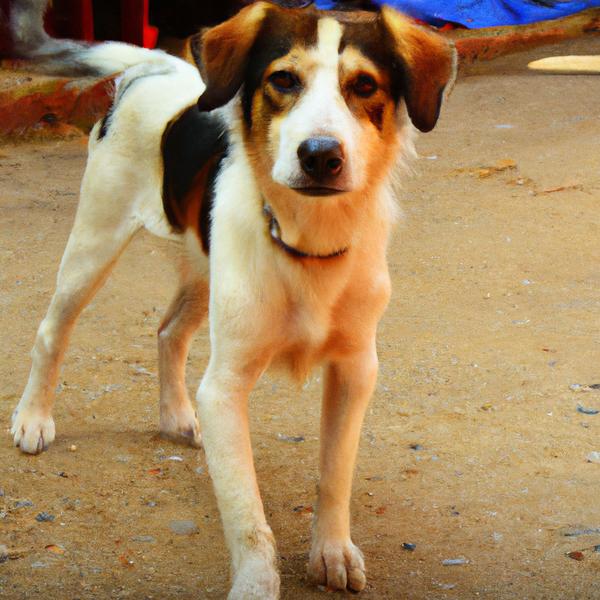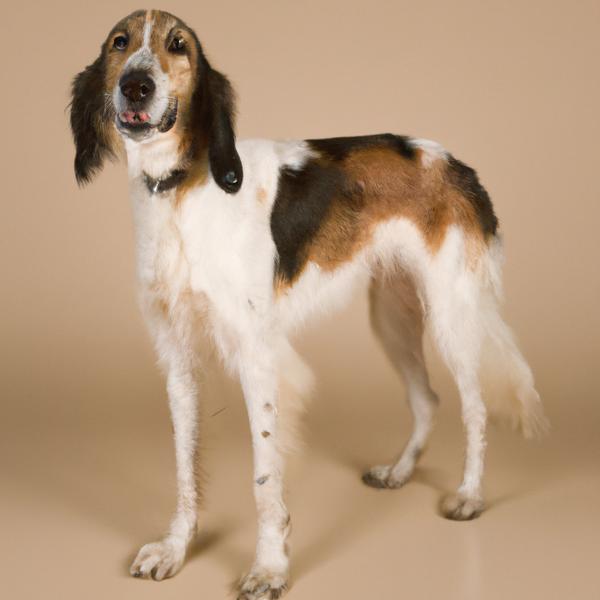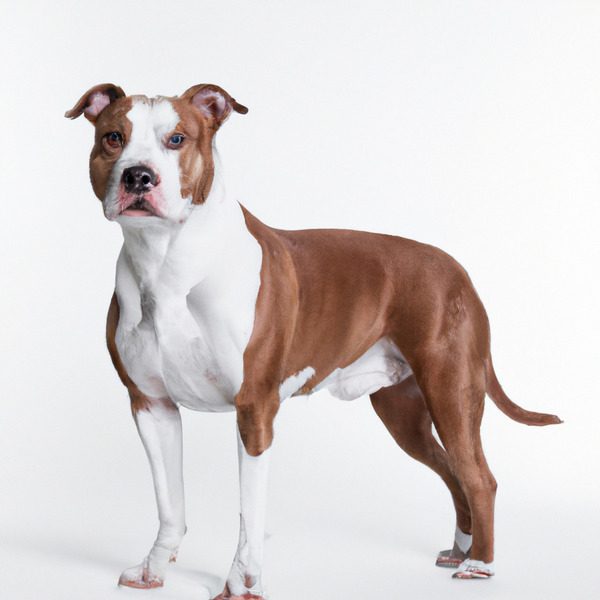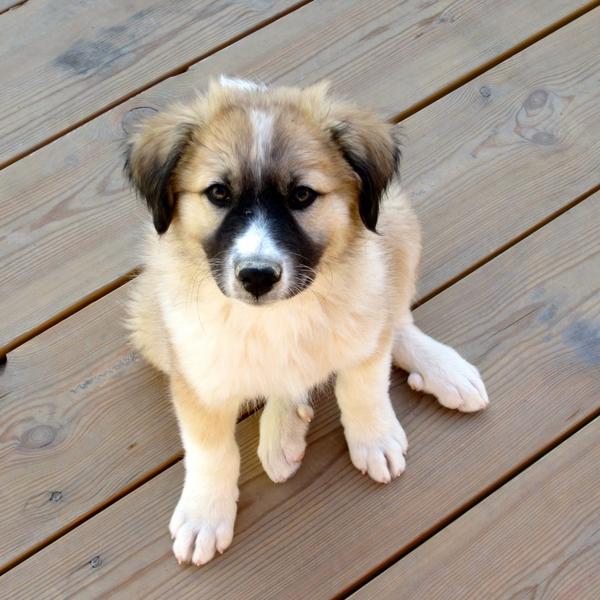Rotterman vs. Kuchi: Breed Differences and Similarities
Hypoallergenic
Are Rottermans or Kuchis hypoallergenic, or neither?
Unfortunately, neither Rotterman nor Kuchi are hypoallergenic, which may not make them the best choice for dog lovers who suffer from pet allergies.
Temperament
What are the personalities of Rotterman and Kuchi dogs?
Independent
Energetic
Protective
Alert
Courageous
Intelligent
Obedient
Loyal
Fearless
Good-natured
Aloof
Clownish
Dignified
Happy
Independent
Shedding Level
Do Rottermans shed more than Kuchis, or which breed sheds more, Rottermans or Kuchis?
Rotterman or Kuchi dogs are not heavy shedders, but they will lose a significant amount of hair each year. To decrease the amount of shedding, you can regularly brush your Rotterman or Kuchi. This will remove loose hair and keep their coat growing in the same direction.
Watchdog Ability
Which dog breed makes a better watchdog, the Rotterman or Kuchi?
Choose a Rotterman if you want a top-notch watchdog. This breed takes guarding seriously, and may not require much training, though obedience or guard dog training can improve their skills.
Avoid Kuchis as watchdogs - they're not effective.
Ancestry
What are the origins of Rotterman and Kuchi breeds?
Doberman Pinscher and Rottweiler
Molosser-type Dogs
Date of Birth
When were Rotterman and Kuchi breeds first developed?
Unknown
Eye Color Possibilites
What are the eye colors of Rotterman and Kuchi dogs?
Brown
Amber
Brown
Nose Color Possibilites
What are the natural nose colors of Rotterman and Kuchi?
Black
Black
Brown
Coat Color Possibilites
What are the natural colors of the coat for Rotterman and Kuchi breeds?
Sable
Black
Brown
Fawn
Black
Gray
Red
Fawn
Coat Length
What is the typical coat length for Rotterman and Kuchi breeds?
Rottermans have short coats.
Kuchis have longer coats compared to most dogs.
Coat Density
What is the density of the coat of Rotterman and Kuchi?
Coat Texture
What is the hair texture of Rotterman and Kuchi?
Straight
Litter Size
What is the usual litter size for Rotterman and Kuchi?
A Rotterman can have a litter of 8-12 puppies on average. However, it's worth noting that the size of the litters can vary greatly. Factors that can influence litter size include the health of the mother, breeding history, and genetics.
A Kuchi can have a litter of 12-13 puppies on average. However, it's worth noting that the size of the litters can vary greatly. Factors that can influence litter size include the health of the mother, breeding history, and genetics.
Adaptability
Rottermans are known for their adaptability and can adjust well to different environments and lifestyle changes.
Kuchis have average adaptability to changes in lifestyle and living environments compared to other breeds.
Health Issues
Between Rotterman and Kuchi, which breed is more prone to health problems?
Rottermans typically have low vet costs due to their good health, but it's important to monitor their health and seek vet care when necessary.
While the Kuchi breed is generally healthy, occasional vet check-ups are still necessary to address any health concerns.
Major Concerns
What are the major health concerns for Rotterman and Kuchi breeds?
Canine Hip Dysplasia (Chd)
Von Willebrand's Disease
Hypothyroidism
Mitral Valve Dysplasia
Gastric Dilation Volvulus (GDV) or Bloat
Joint Dysplasia
Hip And Elbow Dysplasia
Minor Concerns
What minor health issues should be kept in mind when owning Rotterman and Kuchi?
Skin Allergies
Eye Infections
Bloat
Occasional Tests
What occasional tests are recommended for Rotterman and Kuchi breeds?
Electrocardiogram
Buccal Mucosal Screening
Regular Full Physical Examination By Veterinarian
Coagulation Assay
Blood Glucose Tests
Complete Ophthalmologic Examination
Blood Work and Serum Chemistry Tests
Skin Biopsy or Intradermal Tests for specific allergies
Urinalysis and Urine Culture
Yearly Physical Examination
OFA on hips and elbows
Energy
How do the energy levels of Rottermans and Kuchis compare?
Rotterman and Kuchi breeds are known for their high energy levels, so if you're looking for a more low-key dog, these breeds may not be the best choice.
Social Needs
Rotterman vs Kuchi social needs comparison
Rotterman has above average social needs and thrives with interaction with humans and other dogs.
Kuchi has average social needs and is less independent than other breeds.
Exercise Needed
Rotterman vs Kuchi exercise need comparison.
The Rotterman and Kuchi breeds need significant physical activity to maintain a healthy lifestyle. They are well-suited for those who lead an active lifestyle and enjoy activities such as running, hiking, or other outdoor pursuits.
Sleeping Need
Which of the two sleeps the most/least: Rotterman or Kuchi?
Rottermans have moderate energy levels and typical sleep patterns of 12-14 hours per day.
Kuchis sleep less than other breeds but still need adequate sleep for good health.
Tendency to Bark
Do Rottermans or Kuchis bark more/less frequently?
The Rotterman is a vocal breed that frequently barks and howls, and may not be suitable for those seeking a quiet companion.
Kuchis bark moderately when necessary and may also bark due to certain triggers like fear, alarm, boredom, greeting, separation anxiety and compulsive barking.
Mouthiness
Mouthiness Comparison: Rotterman vs Kuchi?
Roaming urge
Rotterman vs Labrador: Running away tendency?
Prey Drive
Rotterman or Kuchi - which breed has a higher level of prey drive?
Past times
What are some enjoyable activities and ways to keep Rotterman and Kuchi entertained?
Walk, Chasing around, Walking, Playing Ball, Dog Parks, Jogging, Dawn trotting, Catch treats, Tug-of-war, Fetch, Sleeping, Guard dog, Hide & Seek, Road trip, Cuddle, Run, Car rides, Beach, Fishing, Camping, Walks, Tug of war, Ball, Lots of pats, Training, Swimming, Hike, Frisbee
Agility
Activity Level
Which breed has higher energy, Rottermans or Kuchis?
Rottermans are high-energy dogs. They need mental as well as physical exercise. These dogs require a lot of your involvement and without it they can, and will, become problematic dogs.
Kuchis are medium-energy dogs and typically enjoy socializing and playing casual or even sustained games of chase with other dogs. They may also have occasional periods of barking or racing around the house.
Tolerance of being left alone
Walks per Week
How many miles should Rotterman or Kuchi walk each week?
There's really no limit to how far you walk your dog as long as they're comfortable. For Rotterman, it's at least 14 miles / week. Just remember to build distance and stamina gradually over time.
There's really no limit to how far you walk your dog as long as they're comfortable. For Kuchi, it's at least 10 miles / week. Just remember to build distance and stamina gradually over time.
Activity per Day
Do Rottermans or Kuchis require more exercise?
In general most Rottermans usually need at least 90 minutes of exercise daily. This can be spread across the day and include all sorts of high-energy activities, like walking, running and playing.
In general most Kuchis usually need at least 45 minutes of exercise daily. This can be spread across the day and include all sorts of high-energy activities, like walking, running and playing.
Grooming
Which breed is easier to maintain in terms of grooming, Rottermans or Kuchis?
Rotterman and Kuchi are breeds of dogs that are known for their low grooming needs.
Brushing Frequency
What is the recommended brushing frequency for Rotterman and Kuchi dogs?
Rotterman and Kuchi should be brushed at least once a week. Of course, you can give them more frequent brushes if you find that they are still shedding a lot.
Brushing Tools
What brushing tools are used for Rottermans and Kuchis?
Pin Brush
Slicker Brush
Deshedder
Nail Clipper
Pin Brush
Dematter
Deshedder
Nail Clipper
Cups
How much food should be given to Rotterman or Kuchi in cups?
For an average 70-130 pound (32 - 59 kg) Rotterman feed 3 cups daily. But, keep in mind, the amount you feed is going to be dependent on the quality of the food you are feeding.
For an average 88-176 pound (40 - 80 kg) Kuchi feed 3.4 cups daily. But, keep in mind, the amount you feed is going to be dependent on the quality of the food you are feeding.
Daily Cost
Which breed has a higher daily cost, Rotterman or Kuchi?
The average cost of a Rotterman is somewhere $2.70 - $2.80 per day.
The average cost of a Kuchi is somewhere $3.90 - $4.20 per day.
Monthly Cost
Which breed has a higher monthly cost, Rotterman or Kuchi?
The average per month expenses of a Rotterman is between $55 - $73. This makes an average of $660 - $876 per year. It will be on the higher side when the dog is still small because it will need more frequent visits to the vet, shots.
The average per month expenses of a Kuchi is between $112 - $126. This makes an average of $1344 - $1512 per year. It will be on the higher side when the dog is still small because it will need more frequent visits to the vet, shots.
Intelligence
Comparing Intelligence: Rottermans vs Kuchis
Rotterman is highly intelligent and very trainable.
Kuchi is an independent and stubborn breed with low obedience intelligence, making training a test of patience.
Sensitivity Level
How do Rotterman and Kuchi compare in sensitivity?
These dog breeds are particularly attuned to its environment and the emotions of those around it. Rotterman and Kuchi can be easily overwhelmed by loud noises, new environments, unfamiliar people, or animals. This dog breed is best suited for individuals or families who are patient, gentle, and understanding of its sensitive nature. It may also benefit from a calm and stable home environment, with a consistent routine and plenty of positive reinforcement training.
Affection Dependance
Which is the more affectionate dog breed: Rotterman vs Kuchi?
Apartment Friendly
Which breed is more apartment-friendly: Rotterman or Kuchi?
The Rotterman is a great apartment dog, thriving with sufficient exercise and time outside as part of their daily routine.
The Kuchi is not suitable for apartments and requires a large yard to thrive. Pent-up energy in small spaces can lead to destructive behavior.
Child Friendly
Do Rottermans or Kuchis have a friendlier temperament towards children?
Rottermans have an average level of friendliness towards children.
Kuchis are good with kids if socialized and trained from a young age.
Senior-friendly
Which dog is more suitable as a pet for the elderly - Rotterman or Kuchi?
Cat Friendly
Do Rotterman or Kuchi breeds have a better compatibility with cats?
Rottermans are average in their friendliness toward cats and tend to do well with them, especially if raised together.
Kuchis are somewhat cat friendly and can be trained to get along with cats.
Dog Friendly
Which breed is more sociable with other dogs: Rotterman or Kuchi?
Rottermans are less friendly towards other dogs, but can improve with socialization.
Kuchis are average in their friendliness towards other dogs, and socialization can help.
Pet friendly
How do Rotterman or Kuchi dogs interact with other pets?
Stranger Friendly
Which breed is more friendly with strangers: Rotterman or Kuchi?
Rottermans are not very stranger friendly.
Kuchis are quick to announce strangers and can be standoffish or suspicious.
Playfulness
Which breed is more playful between Rotterman and Kuchi?
Rottermans have an average level of playfulness, enjoying playtime like most dogs but not excessively so.
Kuchis are a playful breed that needs daily playtime to be happy.
Trainability
How do the trainability levels of Rottermans and Kuchis compare?
Rottermans are popular for their ease of training and quick learning ability.
Kuchis are usually easy to train but require consistency to fully obey commands.
Compare Rotterman with other breeds

Mastador
Rotterman vs Mastador

Wheagle
Rotterman vs Wheagle

Crested Malt
Rotterman vs Crested Malt

Shih-Mo
Rotterman vs Shih-Mo

Spreagle
Rotterman vs Spreagle

Cattle Collie Dog
Rotterman vs Cattle Collie Dog

American Pit Bull Terrier
Rotterman vs American Pit Bull Terrier

Beauceron
Rotterman vs Beauceron

Wel-Chon
Rotterman vs Wel-Chon

Kuchi
Rotterman vs Kuchi

Beagle Point
Rotterman vs Beagle Point

French Bull Rat Terrier
Rotterman vs French Bull Rat Terrier
